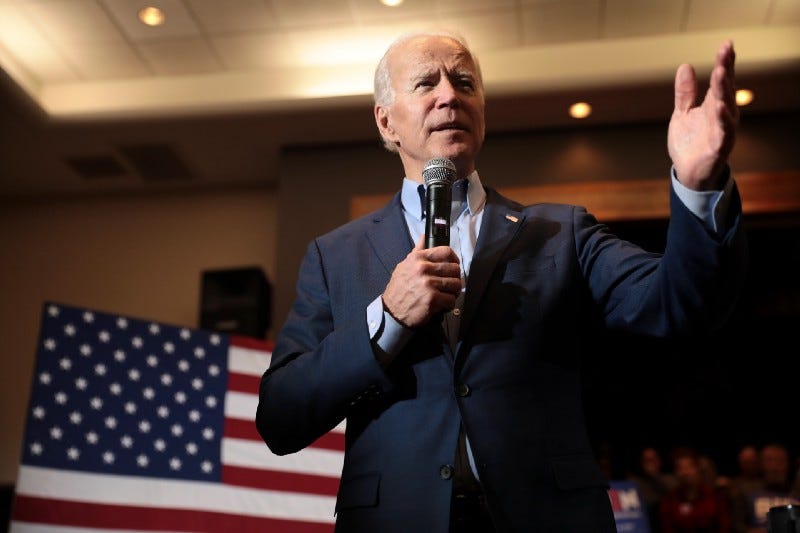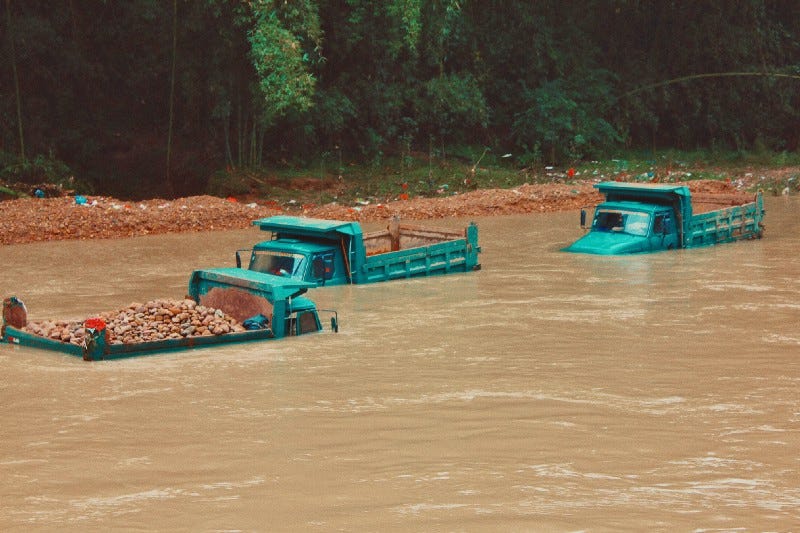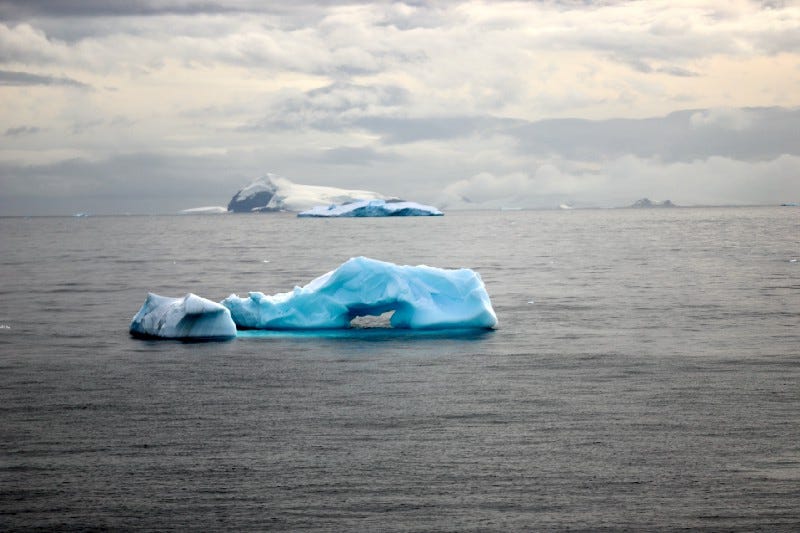Biden’s first day is packed with climate action
Welcome to Planet Week, where we highlight the last week of environmental news and what it means for our Planet.
Welcome to Planet Week, where we highlight the last week of environmental news and what it means for our Planet.
Last week, Joe Biden was sworn in as the United States’ 46th president, replacing the worst environmental president in history. Elon Musk offered $100 million to whoever invents the best carbon-capture technology. And climate change made up the bulk of this year’s Global Risks Report.
In case you missed it, here’s what else happened around the Planet:
Monday, January 18
Climate change will shift tropical rain belt
Earth’s tropical rain belt may soon move, spelling disaster for billions of people. A study published Monday found that by 2100, climate change could shift the intertropical convergence zone — a narrow but significant band of heavy rain near the equator — which would intensify floods in some places and fuel droughts in others.
“Our work shows that climate change will cause the position of Earth’s tropical rain belt to move in opposite directions in two longitudinal sectors that cover almost two-thirds of the globe, a process that will have cascading effects on water availability and food production around the world,” lead author Antonios Mamalakis said in a statement.
Tuesday, January 19
Supreme Court hears Baltimore’s case against Big Oil
On Tuesday, the Supreme Court heard arguments from the city of Baltimore, which sued more than a dozen major oil companies, including Shell, BP, and ExxonMobil, for damages due to climate change.
The hearing specifically deals with where the case should be tried. Though the suit was initially filed in state court, Big Oil argues that it should be heard in federal court, where judges may be more lenient toward fossil fuel companies, reports NPR.
Remarkably, Supreme Court Justice Amy Coney Barrett, whose father worked for Shell for 29 years, presided over the case, reports The Hill. For the record, Justice Samuel Alito, who owns stock in some of the oil companies, recused himself.

Wednesday, January 20
Biden’s first day is packed with climate action
We could have made this whole newsletter about Biden’s busy first day as U.S. president and what it means for climate action — but we’ll stick to the highlights. Shortly after his inauguration on Wednesday, Biden signed 17 executive orders, and with it, reversed some of Trump’s most environmentally damaging policies.
“A cry for survival comes from the planet itself,” said Biden in his inaugural address. “A cry that can’t be any more desperate or any more clear.”
Among the orders, two stand out for both their symbolism and significance: Biden reentered the Paris Agreement, the international agreement to combat global warming, and revoked permits for the Keystone XL pipeline, the expansive oil pipeline to run from Canada to the Texas Gulf.
By rejoining the Paris Agreement, Biden stiff-armed Trump’s “America First policy,” signaling that climate action will be achieved with international cooperation. In 2020, the Trump campaign formally exited the deal, making the U.S. the only country to withdraw from the agreement. Read more by The New York Times.
Citing its inconsistency with his administration’s “economic and climate imperatives,” Biden canceled the 1,700-mile Keystone XL pipeline, which would’ve carried 800,000 barrels of oil a day across America’s heartland. Conservatives are claiming the move will cost thousands of jobs, but their arguments are mostly bullshit, as HEATED points out.
But that’s not all
Here’s a roundup of a number of Biden’s other major climate moves. We’ve known about many of these directives for months, but to see them on paper is still a welcomed relief:
Biden suspended oil and gas leases on federal lands for 60 days, reports Reuters. The order doesn’t affect existing leases or operations, but it could be the first step toward a permanent ban on such leases, like those for sale in the Arctic National Wildlife Refuge.
Biden is reviewing some of Trump’s worst environmental follies, as outlined in this sweeping executive order. The administration plans to reverse vehicle emissions standards, update methane standards for the fossil fuel industry, and restore previously shrunk national monuments.
Biden will also halt construction of the U.S.-Mexico border wall. The wall has not only been an incredible waste of money — it’s threatened wildlife and ecosystems.
And I can’t believe this is news, but the White House once again recognizes climate change as a threat, adding new references to the climate crisis to its website. In 2017, the Trump administration deleted all references to climate change on the White House site.
Having trouble keeping up? The Washington Post is tracking all of Biden’s environmental actions. We also wrote about what’s next for the Biden administration after a busy first week in Planet Days.
Climate change supercharges lake heatwaves
New research finds that climate change is creating more frequent, hotter, and longer-lasting “lake heatwaves,” which could devastate ecosystems. By 2100, average lake heatwaves could be 1.7 degrees Celsius hotter and last nearly three months longer. Now, it’s up to governments to do something about it.
“This knowledge must translate into individual and government actions if even some of the most extreme consequences for lakes, and the species that live there, are to be avoided,” Eleanor Jennings, a co-author on the study, told CarbonBrief.
Thursday, January 21
Southern Ocean warms faster than expected
Speaking of hot water, the Southern Ocean is warming faster than previously thought — three to 10 times faster, according to research published in Nature Communications. The Southern Ocean, which separates Australia and Antarctica, is home to a frozen tundra of ice sheets and glaciers. Should warmer surface waters melt them, there could be global implications.
“Like removing a doorstop, the collapse of these ice shelves can free up inland ice to move into the ocean, raising global sea levels and harming coastal communities,” writes The Washington Post.
Storm Cristoph floods then freezes the UK
Storm Cristoph battered the United Kingdom this week, bringing heavy winds, snow, and rainfall to England and Wales. The storm affected 400 homes and forced thousands to evacuate, and a nasty frost over the weekend made everything more complicated.
“The climate crisis is happening right now,” Emma Howard Boyd, chair of the U.K.’s Environment Agency, told The Independent. “What we’ve seen in the past 24 hours should remind us that we continually need to enhance the way we prepare for the climate shocks that we’re going to see.”
Bonus
Puffin stuff
Atlantic puffins were abundant along Maine’s coast before the 19th century, but decades of hunting the birds and collecting their eggs left populations decimated. In 1901, just one pair of puffins were known to be nesting off of Maine’s coast.
Recent conservation efforts and restrictions on commercial fishing, however, have brought new life to the iconic birds — known for their colorful peaks and memorable waddle. A new set of rules will go into effect on Feb. 10. Read more from The Associated Press.
Have a great week.
— Brandon and Sam







